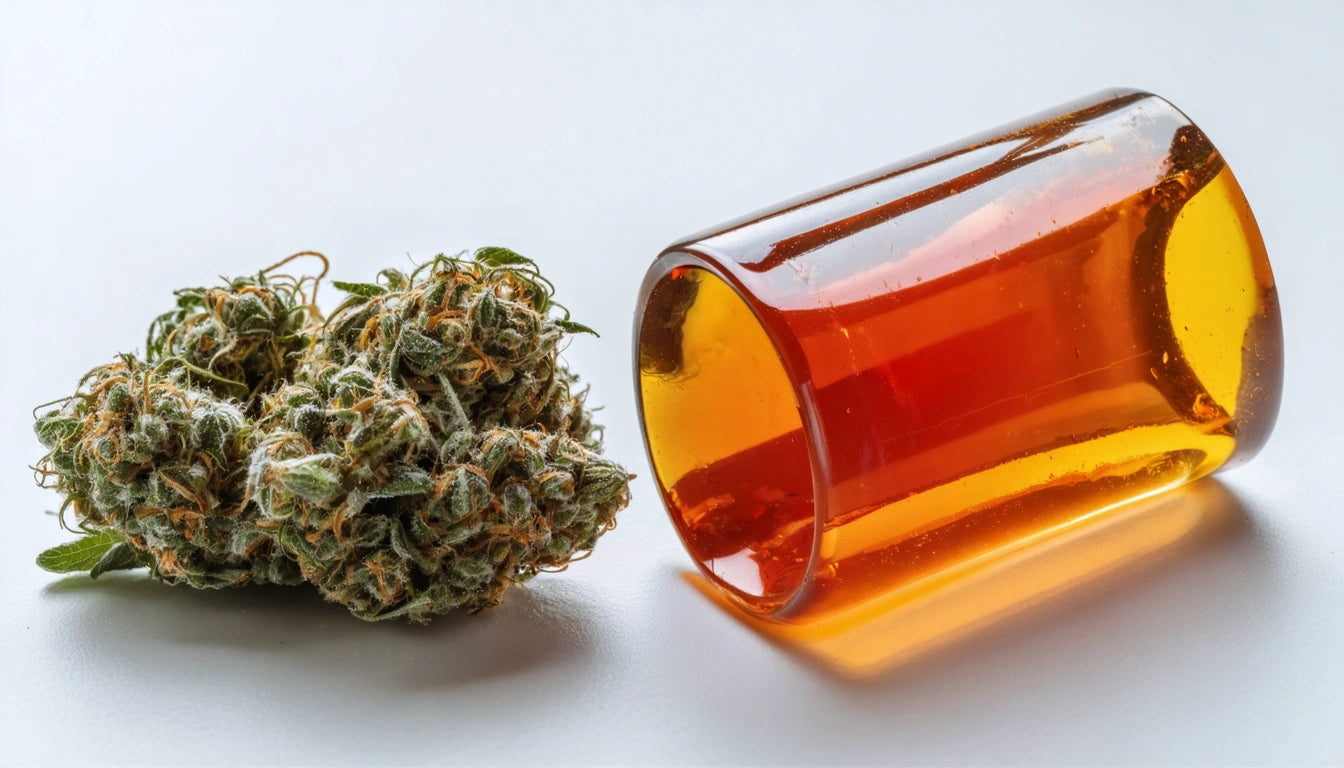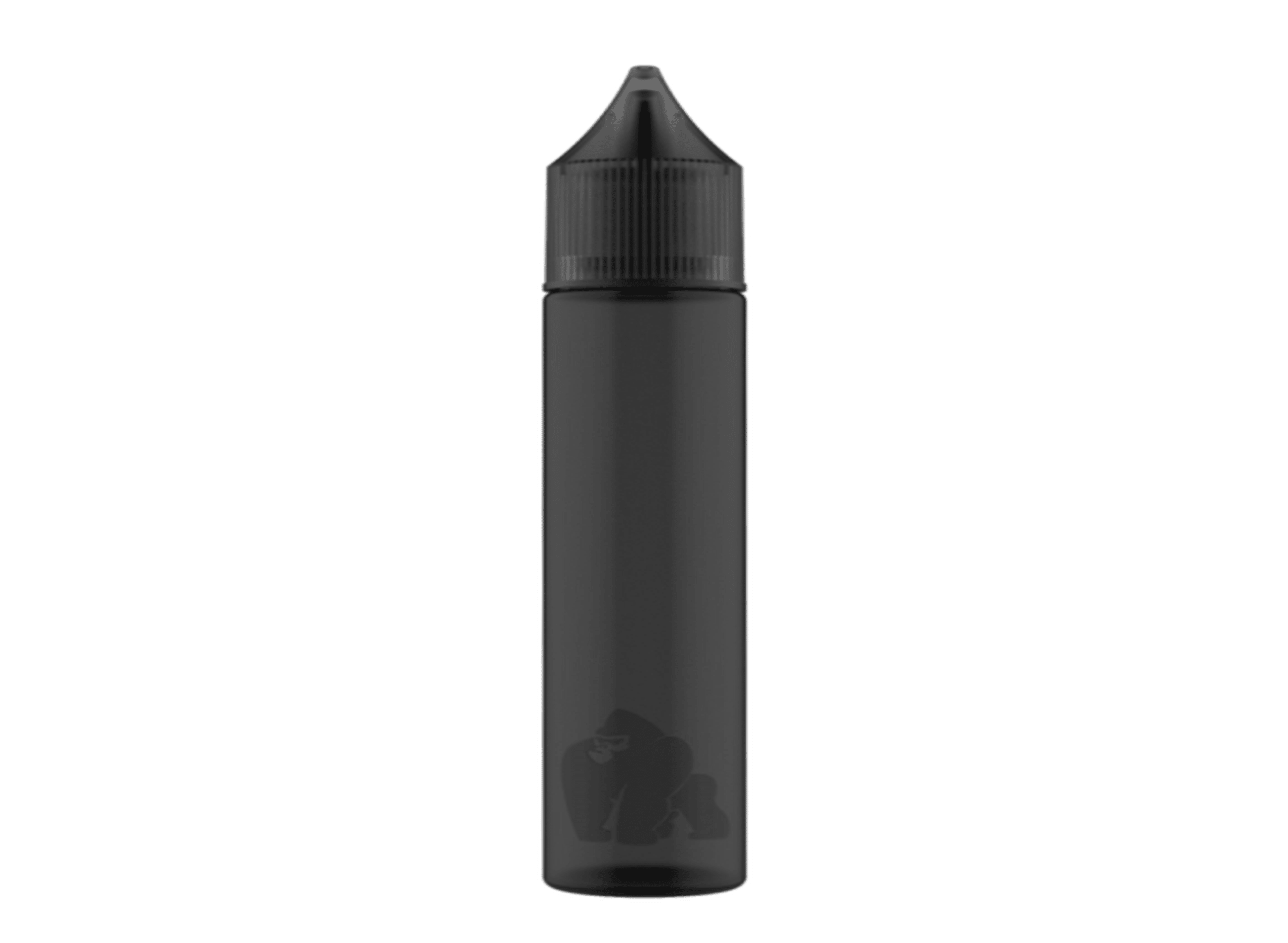Table of Contents
Understanding the Differences Between Resin and Rosin in Cannabis Products
The cannabis concentrate market has expanded dramatically, introducing consumers to products like resin and rosin that offer potent experiences in compact forms. Though their names sound similar, resin and rosin represent fundamentally different approaches to cannabis extraction, resulting in distinct products with unique characteristics, potencies, and applications.
Extraction Methods: How Resin and Rosin Are Made
The primary difference between resin and rosin lies in their extraction methods. This fundamental distinction influences everything from flavor profile to final product consistency.
Resin Extraction
Resin extraction typically involves hydrocarbon solvents like butane or propane to strip cannabinoids and terpenes from plant material. As explained in this comprehensive guide on live resin, the process requires specialized equipment and technical expertise to ensure both safety and quality.
The solvent passes through cannabis material, binding with cannabinoids and terpenes before being purged through heat and vacuum processes. This method can efficiently extract compounds from large quantities of plant material, making it commercially viable for scale production.
Rosin Extraction
Rosin, by contrast, is produced through a solventless process using only heat and pressure. Cannabis material is placed between heated plates and pressed, forcing oils to separate from the plant matter. This straightforward approach requires no chemical solvents, making it appealing to consumers seeking more natural products.
The simplicity of rosin production means it can be created with basic equipment, though commercial operations use sophisticated hydraulic presses to maximize yields and consistency. Many enthusiasts appreciate solventless rosin extraction for its purity and artisanal quality.
Potency Profiles: THC Content and Cannabinoid Preservation
Both resin and rosin can produce highly potent concentrates, but they differ in how they preserve the plant's natural compounds.
Resin Potency
Resin products, particularly live resin, excel at preserving a wide spectrum of cannabinoids and terpenes. Live resin specifically is created from flash-frozen cannabis, capturing the plant's full chemical profile before degradation can occur. This results in THC percentages typically ranging from 65-90%, depending on the source material and extraction precision.
When comparing live resin vs distillate, resin maintains more of the plant's natural compound ratios, while distillate isolates specific cannabinoids at the expense of terpenes.
Rosin Potency
Rosin typically produces concentrates with THC levels between 60-80%, though premium products can exceed this range. The solventless process preserves delicate terpenes that might otherwise be damaged by chemical solvents, potentially offering a more authentic representation of the original strain's effects.
The gentler extraction method means rosin often retains more of the plant's natural flavonoids and minor cannabinoids, contributing to what many users describe as a more complete entourage effect.
Flavor Experience: Terpene Profiles in Resin vs Rosin
The flavor profile represents one of the most noticeable differences between resin and rosin products, directly influencing consumer preference.
Resin Flavor Profile
Live resin is renowned for its robust, complex flavor profiles that closely mirror the original plant. By flash-freezing cannabis immediately after harvest, live resin preserves terpenes that would otherwise be lost during drying and curing.
Cured resin, made from dried and cured cannabis, offers a more subdued flavor profile that some consumers prefer for its smoothness and familiarity.
Rosin Flavor Profile
Rosin is celebrated for its clean, pure flavor that many connoisseurs consider superior. Without solvents that can leave subtle aftertastes, rosin delivers an unadulterated experience of the plant's terpene profile.
Live rosin, made from fresh-frozen material, combines the terpene preservation of flash-freezing with the purity of solventless extraction, creating what many consider the ultimate expression of cannabis flavor.
Product Variations: Live, Cured, and Cart Options
Both resin and rosin are available in multiple forms, each offering different consumption experiences.
Live vs Cured Products
The "live" designation indicates the cannabis was frozen immediately after harvest, while "cured" means it underwent traditional drying and curing. This distinction applies to both resin and rosin products:
- Live resin vs cured resin: Live resin typically offers more vibrant terpene profiles and effects that more closely mirror the living plant.
- Live rosin vs cured resin: These represent opposite ends of the processing spectrum, with live rosin offering solventless purity and cured resin providing solvent-based extraction from dried material.
Cartridge Considerations
When comparing resin vs rosin carts, several factors come into play:
- Consistency: Resin typically works better in standard vape hardware, while rosin often requires specialized cartridges due to its thicker consistency.
- Price point: Rosin carts generally command premium prices due to lower yields and more labor-intensive production.
- Durability: Resin carts often have longer shelf life, while rosin can degrade more quickly if not properly stored.
For those interested in pre-roll options that deliver concentrated experiences without the need for vaping hardware, custom infused pre-roll cones offer an alternative consumption method that combines flower with concentrates.
Choosing the Right Concentrate for Your Needs
When deciding between resin and rosin products, consider these key factors:
Production Values
If environmental impact and production methods matter to you, rosin's solventless approach may align better with your values. Resin production requires chemical solvents but can be more efficient at scale.
Flavor Priority
For the absolute purest flavor experience, live rosin typically excels. However, high-quality live resin can offer comparable terpene profiles at a lower price point. When comparing live resin variations, products like live resin sugar offer unique texture and flavor experiences.
Budget Considerations
Resin products generally cost less than their rosin counterparts due to higher yields and more efficient production. The price difference is most pronounced when comparing live rosin to other concentrates.
Ultimately, the question "is live resin or rosin better" has no definitive answer. Each offers distinct advantages depending on your priorities regarding flavor, potency, production methods, and price point. Many enthusiasts keep both options in their collection to enjoy the unique qualities each brings to the cannabis experience.











Leave a comment
All comments are moderated before being published.
This site is protected by hCaptcha and the hCaptcha Privacy Policy and Terms of Service apply.